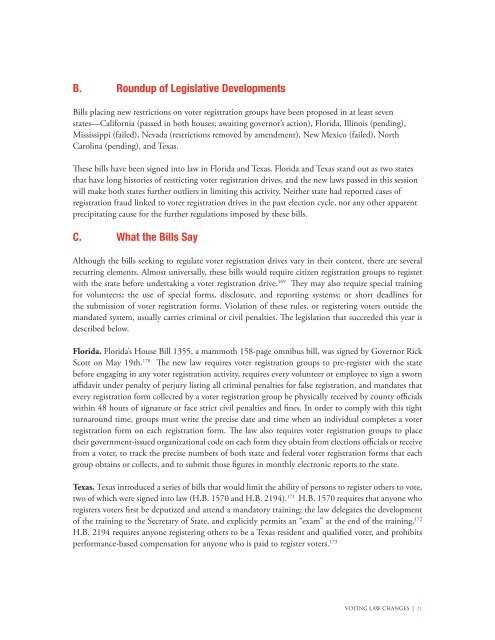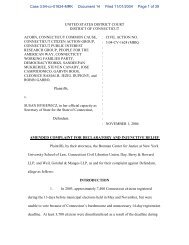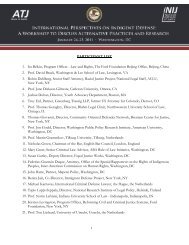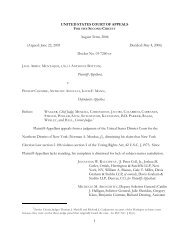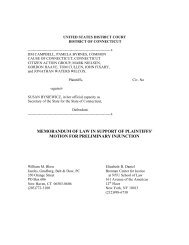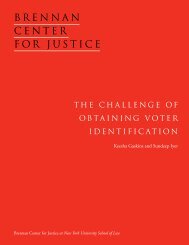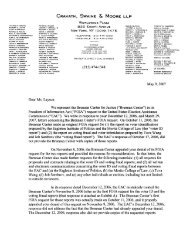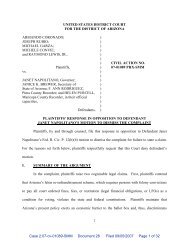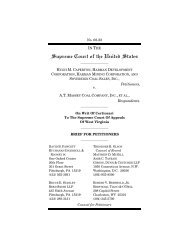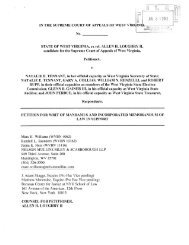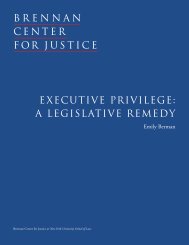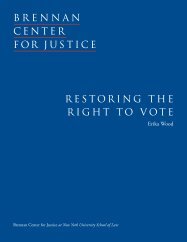BRENNAN CENTER FOR JUSTICE
BRENNAN CENTER FOR JUSTICE
BRENNAN CENTER FOR JUSTICE
You also want an ePaper? Increase the reach of your titles
YUMPU automatically turns print PDFs into web optimized ePapers that Google loves.
B. Roundup of Legislative Developments<br />
Bills placing new restrictions on voter registration groups have been proposed in at least seven<br />
states—California (passed in both houses; awaiting governor’s action), Florida, Illinois (pending),<br />
Mississippi (failed), Nevada (restrictions removed by amendment), New Mexico (failed), North<br />
Carolina (pending), and Texas.<br />
These bills have been signed into law in Florida and Texas. Florida and Texas stand out as two states<br />
that have long histories of restricting voter registration drives, and the new laws passed in this session<br />
will make both states further outliers in limiting this activity. Neither state had reported cases of<br />
registration fraud linked to voter registration drives in the past election cycle, nor any other apparent<br />
precipitating cause for the further regulations imposed by these bills.<br />
C. What the Bills Say<br />
Although the bills seeking to regulate voter registration drives vary in their content, there are several<br />
recurring elements. Almost universally, these bills would require citizen registration groups to register<br />
with the state before undertaking a voter registration drive. 169 They may also require special training<br />
for volunteers; the use of special forms, disclosure, and reporting systems; or short deadlines for<br />
the submission of voter registration forms. Violation of these rules, or registering voters outside the<br />
mandated system, usually carries criminal or civil penalties. The legislation that succeeded this year is<br />
described below.<br />
Florida. Florida’s House Bill 1355, a mammoth 158-page omnibus bill, was signed by Governor Rick<br />
Scott on May 19th. 170 The new law requires voter registration groups to pre-register with the state<br />
before engaging in any voter registration activity, requires every volunteer or employee to sign a sworn<br />
affidavit under penalty of perjury listing all criminal penalties for false registration, and mandates that<br />
every registration form collected by a voter registration group be physically received by county officials<br />
within 48 hours of signature or face strict civil penalties and fines. In order to comply with this tight<br />
turnaround time, groups must write the precise date and time when an individual completes a voter<br />
registration form on each registration form. The law also requires voter registration groups to place<br />
their government-issued organizational code on each form they obtain from elections officials or receive<br />
from a voter, to track the precise numbers of both state and federal voter registration forms that each<br />
group obtains or collects, and to submit those figures in monthly electronic reports to the state.<br />
Texas. Texas introduced a series of bills that would limit the ability of persons to register others to vote,<br />
two of which were signed into law (H.B. 1570 and H.B. 2194). 171 H.B. 1570 requires that anyone who<br />
registers voters first be deputized and attend a mandatory training; the law delegates the development<br />
of the training to the Secretary of State, and explicitly permits an “exam” at the end of the training. 172<br />
H.B. 2194 requires anyone registering others to be a Texas resident and qualified voter, and prohibits<br />
performance-based compensation for anyone who is paid to register voters. 173<br />
voting LAW CHANGES | 21


